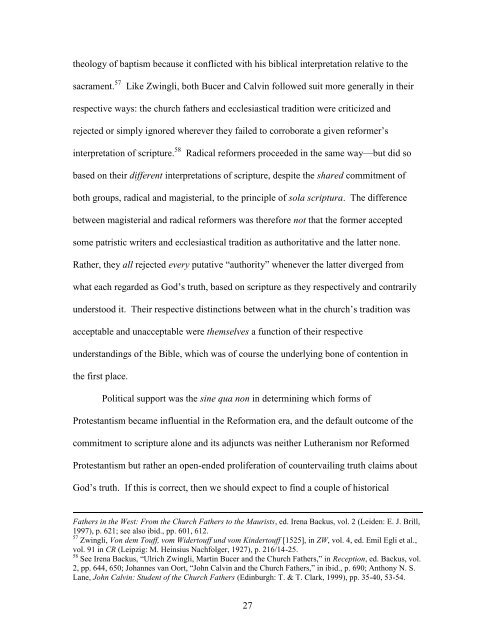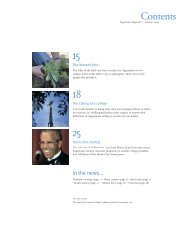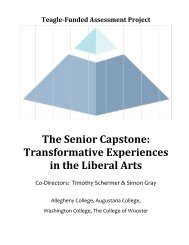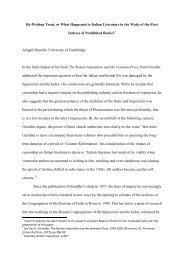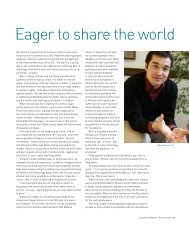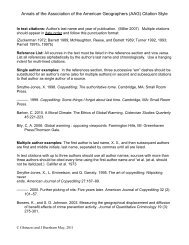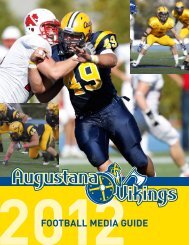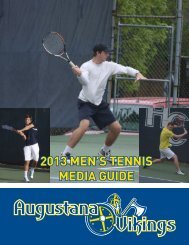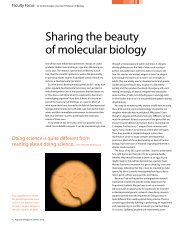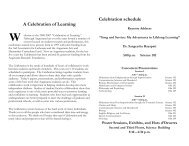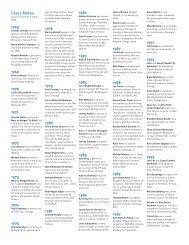Brad S. Gregory - Augustana College
Brad S. Gregory - Augustana College
Brad S. Gregory - Augustana College
Create successful ePaper yourself
Turn your PDF publications into a flip-book with our unique Google optimized e-Paper software.
theology of baptism because it conflicted with his biblical interpretation relative to the<br />
sacrament. 57 Like Zwingli, both Bucer and Calvin followed suit more generally in their<br />
respective ways: the church fathers and ecclesiastical tradition were criticized and<br />
rejected or simply ignored wherever they failed to corroborate a given reformer‟s<br />
interpretation of scripture. 58 Radical reformers proceeded in the same way—but did so<br />
based on their different interpretations of scripture, despite the shared commitment of<br />
both groups, radical and magisterial, to the principle of sola scriptura. The difference<br />
between magisterial and radical reformers was therefore not that the former accepted<br />
some patristic writers and ecclesiastical tradition as authoritative and the latter none.<br />
Rather, they all rejected every putative “authority” whenever the latter diverged from<br />
what each regarded as God‟s truth, based on scripture as they respectively and contrarily<br />
understood it. Their respective distinctions between what in the church‟s tradition was<br />
acceptable and unacceptable were themselves a function of their respective<br />
understandings of the Bible, which was of course the underlying bone of contention in<br />
the first place.<br />
Political support was the sine qua non in determining which forms of<br />
Protestantism became influential in the Reformation era, and the default outcome of the<br />
commitment to scripture alone and its adjuncts was neither Lutheranism nor Reformed<br />
Protestantism but rather an open-ended proliferation of countervailing truth claims about<br />
God‟s truth. If this is correct, then we should expect to find a couple of historical<br />
Fathers in the West: From the Church Fathers to the Maurists, ed. Irena Backus, vol. 2 (Leiden: E. J. Brill,<br />
1997), p. 621; see also ibid., pp. 601, 612.<br />
57 Zwingli, Von dem Touff, vom Widertouff und vom Kindertouff [1525], in ZW, vol. 4, ed. Emil Egli et al.,<br />
vol. 91 in CR (Leipzig: M. Heinsius Nachfolger, 1927), p. 216/14-25.<br />
58 See Irena Backus, “Ulrich Zwingli, Martin Bucer and the Church Fathers,” in Reception, ed. Backus, vol.<br />
2, pp. 644, 650; Johannes van Oort, “John Calvin and the Church Fathers,” in ibid., p. 690; Anthony N. S.<br />
Lane, John Calvin: Student of the Church Fathers (Edinburgh: T. & T. Clark, 1999), pp. 35-40, 53-54.<br />
27


